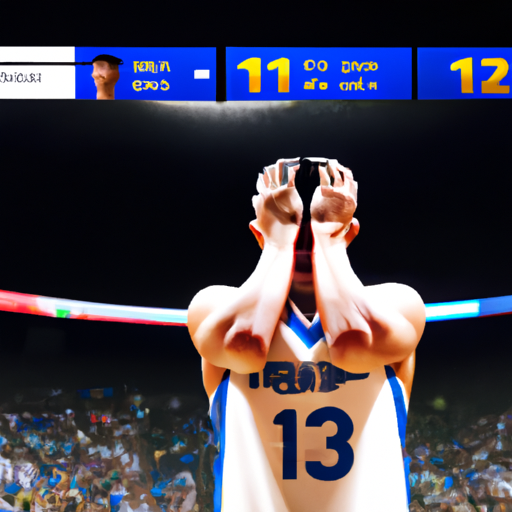‘Still a loss’: Ravena says Gilas FIBA World Cup rematch vs Italy no better despite lower deficit

Analysis of Gilas FIBA World Cup rematch against Italy: Still a loss despite lower deficit
The recent rematch between Gilas Pilipinas and Italy in the FIBA World Cup has left fans and analysts with mixed feelings. While the Philippine team managed to narrow the deficit compared to their previous encounter, it was still a loss in the end. This article aims to analyze the game and delve into the reasons why the lower deficit does not necessarily indicate a significant improvement for Gilas.
Firstly, it is important to acknowledge the efforts of the Philippine team in reducing the margin of defeat. In their initial encounter, Italy dominated the game, leaving Gilas with a staggering 46-point deficit. However, in the rematch, Gilas managed to trim the margin down to 14 points. This improvement is commendable and shows that the team has made some adjustments and improvements in their gameplay.
Despite the lower deficit, it is crucial to note that the outcome of the game remained the same – a loss for Gilas. While narrowing the margin is a positive development, it does not change the fact that the team was unable to secure a victory. In the world of competitive sports, the ultimate goal is to win, and anything short of that is considered a loss.
One factor that contributed to Gilas’ defeat was their struggle to contain Italy’s offensive firepower. The Italian team boasts a roster filled with skilled and experienced players who were able to exploit the weaknesses in Gilas’ defense. Despite their efforts to tighten their defense, Gilas still struggled to limit Italy’s scoring opportunities, resulting in a high-scoring game.
Another aspect that hindered Gilas’ chances of victory was their inconsistent offensive performance. While they were able to put up a better fight compared to their previous encounter, there were still moments of offensive stagnation and missed opportunities. This inconsistency in scoring prevented Gilas from gaining the upper hand and ultimately contributed to their loss.
Furthermore, the rematch against Italy highlighted the need for Gilas to further develop their team chemistry and cohesion. The Italian team showcased a seamless coordination on both ends of the court, with players moving in sync and making smart decisions. In contrast, Gilas struggled at times to find their rhythm and execute plays effectively. This lack of cohesion proved to be a significant disadvantage and ultimately cost them the game.
In conclusion, while the lower deficit in the rematch between Gilas Pilipinas and Italy in the FIBA World Cup is a positive sign of improvement, it does not overshadow the fact that it was still a loss for the Philippine team. The game highlighted the need for further adjustments in both the offensive and defensive aspects of their gameplay. Additionally, the importance of team chemistry and cohesion cannot be understated. Moving forward, Gilas must continue to work on these areas to enhance their chances of securing victories in future competitions.
Ravena’s perspective on the Gilas FIBA World Cup rematch: Why he believes it wasn’t any better

The recent rematch between Gilas Pilipinas and Italy in the FIBA World Cup left many fans disappointed, despite the fact that the Philippine team managed to narrow the deficit compared to their previous encounter. One person who shares this sentiment is Kiefer Ravena, a key player for Gilas Pilipinas. Ravena believes that the lower deficit does not necessarily indicate an improvement in the team’s performance.
Ravena, known for his insightful perspective on the game, expressed his thoughts on the rematch during a post-game interview. He acknowledged that the team had indeed made progress in terms of narrowing the point difference. However, he emphasized that the ultimate goal should be to secure a victory, rather than simply reducing the margin of defeat.
The game against Italy was a chance for Gilas Pilipinas to prove their mettle and show that they can compete against top-tier teams. While they managed to keep the score closer this time, Ravena believes that the team still fell short of their potential. He pointed out that there were several missed opportunities and lapses in execution that prevented them from turning the tide in their favor.
One of the key factors that Ravena highlighted was the team’s inability to consistently convert their shots. He noted that despite having good looks at the basket, Gilas Pilipinas struggled to find their rhythm and capitalize on these opportunities. This, in turn, allowed Italy to maintain their lead and ultimately secure the victory.
Ravena also emphasized the importance of defense in determining the outcome of the game. He acknowledged that Italy’s offensive prowess posed a significant challenge for Gilas Pilipinas. However, he believed that the team could have done a better job in containing their opponents and disrupting their offensive flow. By tightening their defense, Ravena believes that Gilas Pilipinas could have potentially swung the game in their favor.
Furthermore, Ravena expressed his disappointment with the team’s overall performance in terms of teamwork and chemistry. He stressed the need for better communication and coordination on the court, as these aspects play a crucial role in achieving success in international competitions. Ravena believes that the team’s lack of cohesion hindered their ability to mount a comeback against Italy.
Despite his disappointment, Ravena remains optimistic about the future of Gilas Pilipinas. He believes that the team has the potential to compete at a higher level and make a mark in international basketball. However, he emphasized the need for continuous improvement and learning from their experiences.
In conclusion, Kiefer Ravena’s perspective on the Gilas FIBA World Cup rematch against Italy sheds light on why he believes that the lower deficit does not necessarily indicate an improvement in the team’s performance. He highlighted missed opportunities, lapses in execution, and the need for better defense and teamwork as key areas for improvement. Ravena’s insights serve as a reminder that there is still work to be done for Gilas Pilipinas to achieve their goals on the international stage.
Exploring the impact of the lower deficit in the Gilas FIBA World Cup rematch against Italy
The recent rematch between Gilas Pilipinas and Italy in the FIBA World Cup has been the talk of the town. While the Philippine team showed improvement by reducing the deficit, it was still a loss in the end. The impact of this lower deficit is worth exploring, as it sheds light on the progress made by Gilas Pilipinas and the challenges they still face.
The game against Italy was highly anticipated, as it was a chance for Gilas Pilipinas to redeem themselves after a disappointing loss in their previous encounter. The team came into the game with a renewed sense of determination and a game plan to minimize their mistakes. The result was a lower deficit compared to their previous match, but it was still not enough to secure a victory.
Reducing the deficit against a strong team like Italy is no small feat. It shows that Gilas Pilipinas has made improvements in their gameplay and execution. The players were more disciplined on defense, making it harder for Italy to score. They also showed better ball movement and decision-making on offense, resulting in more efficient scoring opportunities. These improvements are a testament to the hard work and dedication of the team and their coaching staff.
However, despite these improvements, the fact remains that Gilas Pilipinas still lost the game. The lower deficit may be seen as a moral victory, but it does not change the outcome. The team still fell short of their ultimate goal, which is to win. This highlights the need for further improvement and growth in order to compete at the highest level.
One possible explanation for the lower deficit could be the adjustments made by the coaching staff. They may have identified weaknesses in Italy’s game and devised a strategy to exploit them. This shows the importance of scouting and preparation in international competitions. It also demonstrates the ability of the coaching staff to adapt and make necessary changes to give the team a fighting chance.
Another factor that may have contributed to the lower deficit is the players’ increased familiarity with each other. International competitions often bring together players from different professional leagues, and it takes time for them to develop chemistry and cohesion. The rematch against Italy allowed the players to build on their previous experience and develop a better understanding of each other’s strengths and weaknesses. This improved chemistry could have translated into a more cohesive and effective team performance.
Despite the lower deficit, it is important for Gilas Pilipinas to remain grounded and focused. The road to success in international basketball is long and challenging. The team must continue to work hard, learn from their mistakes, and strive for continuous improvement. The lower deficit against Italy should serve as motivation to push themselves even further and aim for victory in future competitions.
In conclusion, the impact of the lower deficit in the Gilas FIBA World Cup rematch against Italy is significant. It shows the progress made by Gilas Pilipinas in terms of gameplay, execution, and team chemistry. However, it is important to remember that a loss is still a loss, and there is room for further improvement. The team must remain focused and determined in order to achieve their ultimate goal of winning at the highest level of international basketball.

